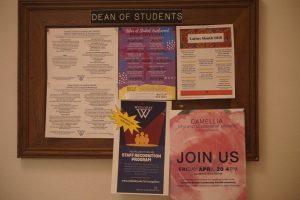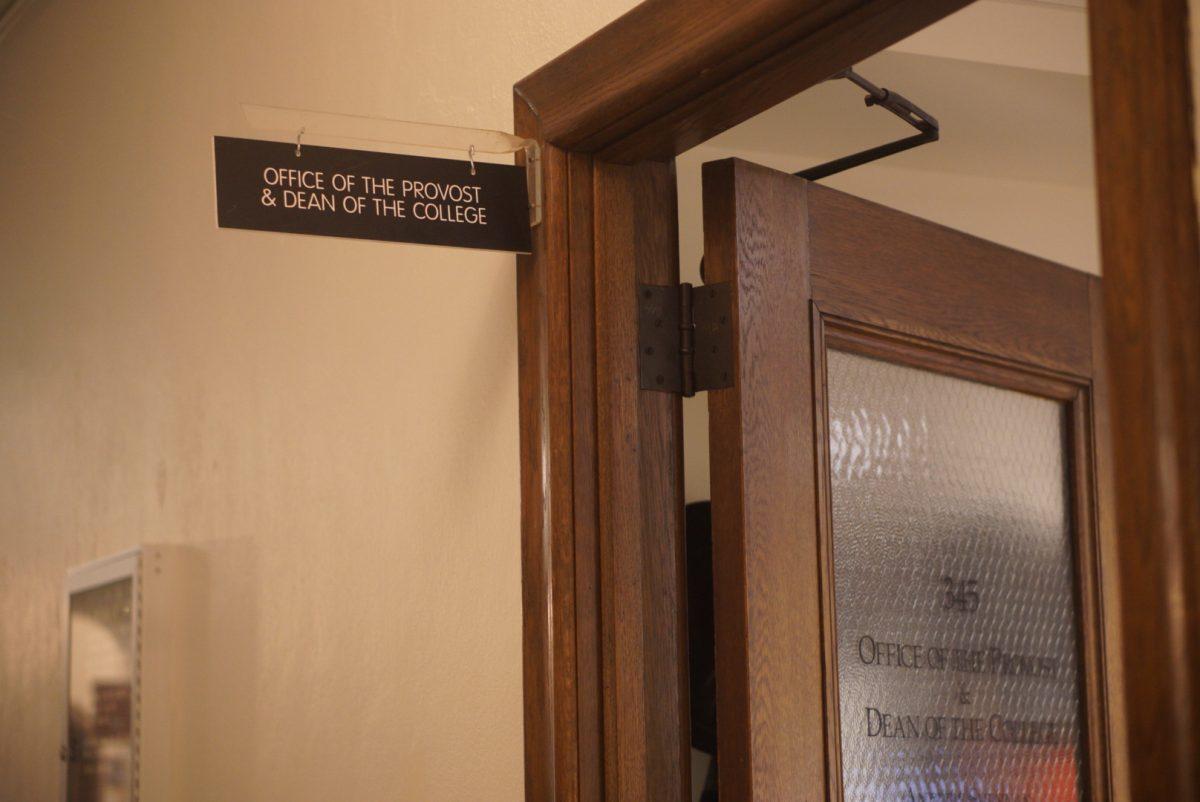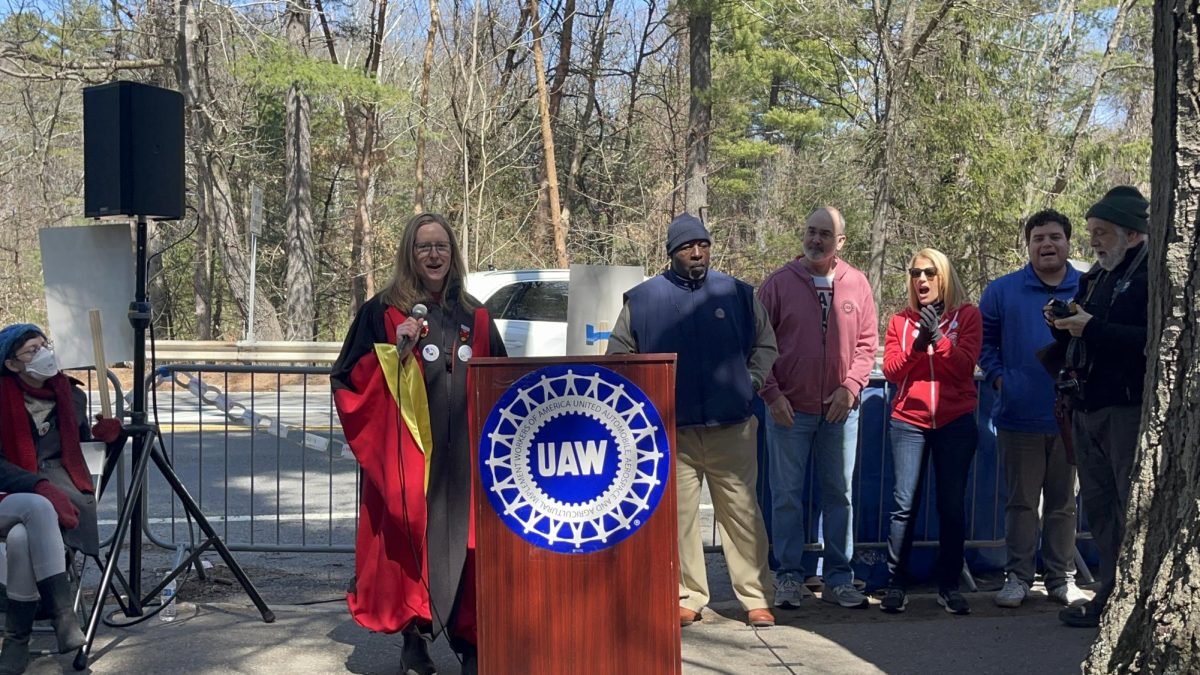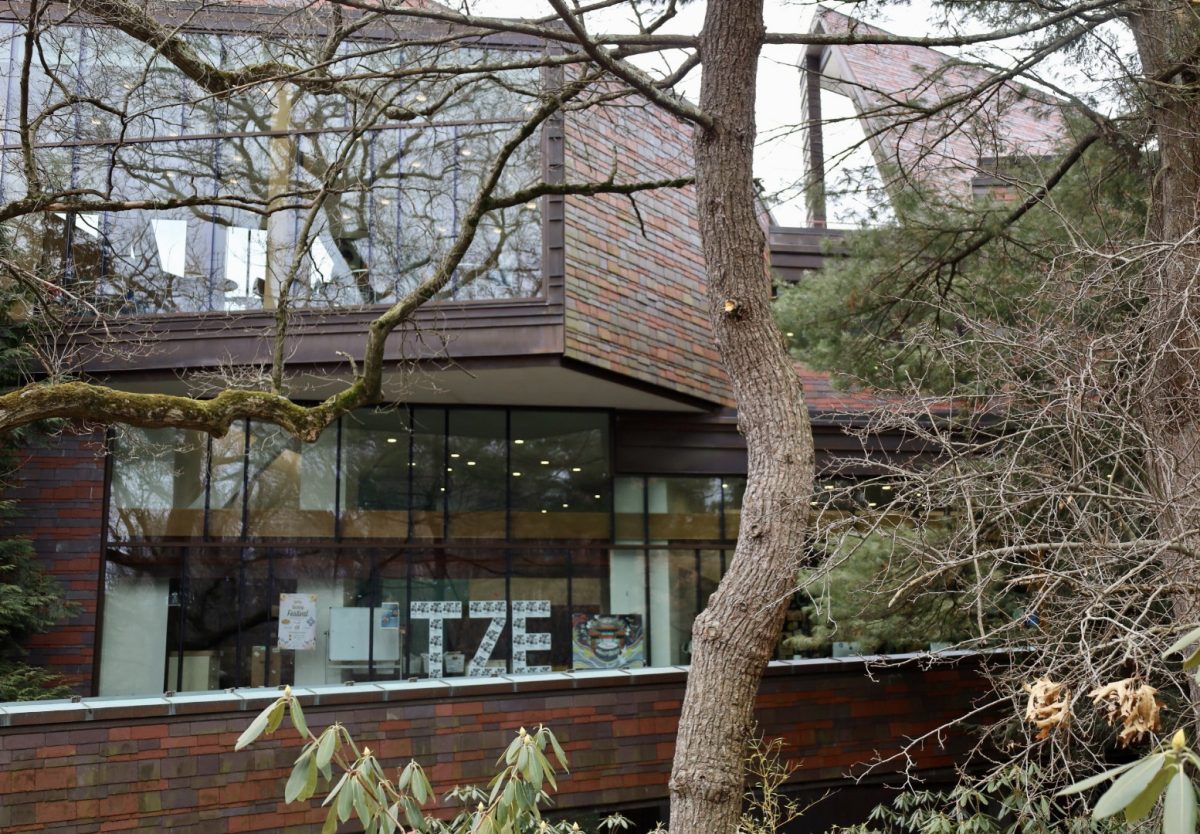Last week, The Wellesley News printed the first of three articles in a series called “Corporatizing our Community,” which seeks to explain the Voluntary Retirement Program (VRP), the reasons for its existence and its possible effects. This second installment focuses on the possible effects that the VRP may have on the curriculum.
On June 30, 2018, Wellesley College is set to lose 34 faculty members across numerous departments due to the voluntary retirement program, or VRP. This onetime retirement program, which offers retirement incentives to faculty and staff members over the age of 60, is a part of the College administration’s efforts to achieve a sustainable operating budget.
For many, including professors and administrative assistants, the transition to a smaller faculty will pose issues for departments seeking to teach an appropriate breadth of subjects. An administrative assistant, who requested anonymity due to fear of retaliation by the College, said that with so many departures, “It’s a pretty big blow. On the administrative side, as we’re developing our curriculum for the next couple of years, we have a lot of TBA [to be announced] for faculty for a lot of our classes, which has been really difficult to plan around.”
“They’ve [the administration] felt that it’s okay to replace people who have a lot of experience and who are at the top of their fields with people who are starting out. And I think some of that is always good, but it was more of a natural way to have that process. Now it was just a sudden, ‘Everybody’s gone,’” she continued.
Professor William Joseph, chair of the political science department, has been teaching at Wellesley since 1980. When he spoke to The Wellesley News, he expressed that a major concern for him is the huge lack of faculty and staff that many departments now face in the wake of so many professors electing to take the the VRP. “[The VRP] goes a long way to reducing the size of the faculty, but it also means a lot more departments are saying, ‘We need this area covered!’” he said.
But Wellesley does not intend to replace every professor who will be retiring at the end of the school year. On February 28, President Paula Johnson emailed a College Announcement to the campus community titled “Update on Progress Towards a Sustainable Operating Budget.” In it, she thanked the “success of the Voluntary Retirement Program (VRP) among administrative staff [in] updating and streamlining College operations as well as realizing significant savings” and also noted that the Provost’s Office is “making progress in its efforts to recalibrate the academic program and the size of the faculty.”
“In order to accomplish the needed reduction in the overall size of the faculty, the majority of tenure-track lines vacated as a result of the VRP will not be replaced,” the email continued.
The majority of tenure-track positions will not be filled according to the decisions made by an Academic Council committee that was created in 2016, the Advisory Committee on Academic Staffing (ACAS). The committee is comprised of faculty who were appointed or elected by peers and senior staff including Provost Andrew Shennan; Dean of Academic Affairs Ann Velenchik; Dean of Faculty Affairs Robbin Chapman and Committee on Minority Recruitment, Hiring and Retention (MRHR) designee Elena Creef.
After creating the committee, the Provost’s Office sent the faculty a memo, which can be viewed on the committee’s web page, on Dec. 8, 2016, titled “Strategic Priorities in the Academic Program,” which recounted the College’s previous educational goals and its goals moving forward, as well as the financial situation it was facing at that time.
“In the years ahead the Provost’s Office and the Wellesley faculty face a challenge the likes of which we have not confronted for many years: how to sustain the excellence of a Wellesley education and the distinction, rigor and ambition of our academic program with a smaller faculty and smaller curriculum,” the memo began.

to reduce faculty now Photo Courtesy of Lien Dao ’20 Photo Editor
Previously, departments that were looking to hire new tenure-track professors were required to make a relatively simple request to the Provost’s Office. Now, department chairs must submit a lengthy application to ACAS, wherein the members of the committee will sift through the applications and make its final recommendation to the Provost’s Office.
On May 22, 2017, the committee submitted its recommendations for appointments for the 2017-2018 school year. That year, the committee received 14 search requests from 11 departments and programs. Only five appointments were available, as the Provost and Deans had previously indicated to the committee, and five were thus recommended to the Provost’s Office. On Sept. 15, 2017, the committee submitted search requests for 2018- 2019 school year. Across 16 departments, 21.5 positions were requested. There is no indication of the number of available positions at this time.
But for ACAS member Richard French, professor of astronomy and former dean of academic affairs, the committee’s work involves heralding Wellesley’s reputation as a liberal arts institution. “Just because some humanities courses don’t have the same enrollments that they used to have, it doesn’t mean that that area shouldn’t be supported. We’re not letting curriculum drive every decision that’s being made. We’re trying to think about what Wellesley’s intellectual domain will be,” he said.
_________________________________________________________________________________________
In the political science department, Joseph indicated that there is a need for professors in areas the department cannot currently cover. He explained that “there are critical areas of the world that we don’t study—Africa, Latin America and Europe—and that we’re very short in staffing in American politics.” In fact, in a recent Political Science Majors Council (PSMC) survey conducted with 84 political science and international relations-political science majors at Wellesley, 14 out of 55 responses to the question, “what courses would you like to see be offered more frequently?” mentioned “Latin America” or “Latin American politics.” In an anonymous response, one participant wrote that “We need more choices. World Politics takes a very Eurocentric approach at Wellesley.”
Joseph is worried about the future state of curriculum as it begins to grapple with the effects of the VRP. “I think the general feeling is that we feel badly that the curriculum is not as strong, and we can’t offer the same rich curriculum that we were once able to—that a place like Wellesley should be able to,” he said.
Regarding the VRP specifically, he noted that at any other time, the political science department, along with any other department that requested new appointments, would have been accommodated. “It’s an unprecedented staffing transition for the department, and it comes at a time of austerity. If this had happened five years ago or so, it would’ve, given our enrollments and numbers of majors, been easy to get the replacements,” Joseph explained.
Meanwhile, in the English department, impending departures also pose curricular difficulties going forward. Lorraine C. Wang Professor of English Margery Sabin worries about the specialized nature of the English department’s curriculum. “What is clear is that in some areas, the subject matter that the people taking the [VRP] teach is essential to the curriculum of that area, and that’s across the board. And some small programs and departments are precarious about how they can continue with the absence of some key people,” Sabin said.
“Personally, I feel quite concerned that Ulysses [which Professor Sabin currently teaches] will never be taught again. It’s even more serious in some of the sciences, and it’s quite serious in history, where the training of graduate programs is very specialized. That all may have to change in the future. It’s not as though there’s going to be no hires anywhere, but all of that is up for grabs, it hasn’t really been sorted out,” she continued.
Professor of English and Chair of the English department Yu Jin Ko further explained the difficulties about making cuts. He said, “What makes this especially difficult is literature is an ever-expanding field, so there’s always new literature being written. So we would have had to make painful sacrifices elsewhere to keep up with new literature anyway. Those cuts are now becoming more painful.”
For Professor Ko, it is obvious that the English department and its students will need to adjust to a smaller faculty size. “In the next five years, it’s fully certain that our department will be smaller. The number of what they call FTEs [full-time equivalent] will be smaller. It’s still unclear to what degree it will be reduced. It’s just beginning for us, this is really new,” he said.
_________________________________________________________________________________________
According to the professors that The Wellesley News has interviewed, a common cause of concern is the possibility of adjunct hiring. Adjunct faculty, which can include lecturers, professors and instructors, teach on a limited-term contract, typically only for a semester or a year, and are ineligible for tenure. Increasingly, colleges and universities are turning towards part-time faculty for their teaching staff. According to the American Association of University Professors (AAUP), more than 50 percent of all faculty appointments across the nation are part-time.
Sabin sees a real possibility for adjunct hiring in the near future. “One thing that many faculty worry about is the hiring of adjuncts. There will have to be some hiring of adjuncts because you can’t just have some subjects not taught,” she explained.
“I think most faculty agree that adjunct hiring is something the College does not want to rely on long term. Many adjunct faculty members really work hard for very much lower pay to the point that they have to have more than one job, so they’re not here all day, so their life is really difficult,” she continued.
In an interview with The Wellesley News, Dean of Academic Affairs Ann Velenchik acknowledged faculty concerns regarding hiring adjunct faculty. “[Provost Shennan and I] understand concerns about increasing our reliance on faculty on term, rather than tenure-track appointments. Because of the departures under the VRP, we expected to see an uptick in the number of short-term faculty hires for 2018-19, and while we did authorize a number of those positions, it did not turn out to be a significantly greater number than we have seen in the recent past,” she said.
The uptick, however, does not fall lightly on the faculty, staff and students who will grapple with the faculty reductions in the future. “We see [reductions] as an opportunity for them to cut back on tenure positions and bring in adjuncts and destabilize and shrink departments. ‘Destabilizing’ is a word of frustration amongst us— basically, when we have our full tenured faculty, we can have a strong curriculum, we can offer everything we like. But when you take that away and throw us into this position where every couple of years we have to find a new adjunct, it’s just a constant carousel of stress,” said the anonymous administrative assistant.
_________________________________________________________________________________________
Provost Andrew Shennan sees the effects of the VRP as challenging but not impossible to overcome. In an interview with The Wellesley News, he said, “I don’t minimize the challenge of adjusting without their being here. I think it would be unrealistic of me to say there’s no challenge of losing so many longtime faculty and staff. Yes, it’s a challenge. Yes, we’re losing a lot of deep experience. I think in a way it’s an opportunity for us to step back a little bit and say, ‘What’s the shape of the faculty that we see in the future? What are the fields students today are interested in studying?’”
Shennan cited the low faculty-to-student ratio as evidence of Wellesley’s commitment to a personal nature of education. At a ratio of seven-to-one, Wellesley College has one of the lowest ratios in the nation. But the departures of professors will bring about a slight increase in the number of students per class.
“It basically comes down to rounding. When people cite that ratio, they round to the nearest number. So we were actually under seven before, six point something, but now we may be over seven. But we’re closer to seven than we are to eight,” Shennan explained.
Velenchik, however, cited a different number. “At the height of the expansion, our student/faculty ratio was less than 7:1, and the contraction we are undertaking will leave us at about 8:1, which is right in line with most other elite liberal arts colleges,” she said.
Both Shennan and Velenchik cite the expansion of the curriculum over the past decade as the reason for reducing faculty and staff numbers now. Between the 2005-2006 and 2015-2016 school years, faculty numbers grew by about 10 percent, mostly in the creation of new departments, such as Environmental Studies, Peace and Justice Studies, Neuroscience and others. With the same number of students on campus, classes grew smaller, and students flocked to the programs and courses that were most suited to their needs.
But the growth of departments has also increased costs at the College. The “expansion did increase the cost of running our academic program, and those cost factors figured significantly into conversations about the budget,” Velenchik stated.
The move to reduce the faculty has come as a surprise to those tasked with upholding Wellesley’s educational goals. “What surprised many faculty was why was this allowed to go on for so long, and now why is this generation of faculty being punished for decisions made or not made by administrators going back a few decades?” Joseph concluded.
Jane Vaughan ‘18, co-editor in chief, contributed to reporting.
Correction: In the first sentence of last week’s article, we wrote that “34 members of the faculty … quietly said their goodbyes to the College on December 22, 2017.” Faculty members will officially retire on June 30, 2018.






